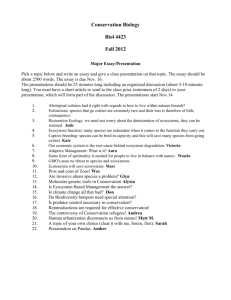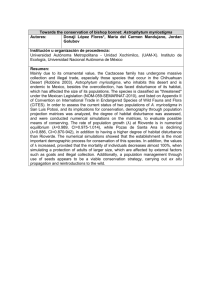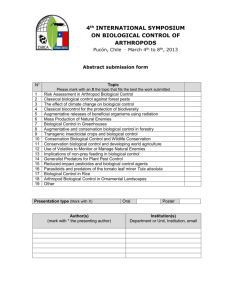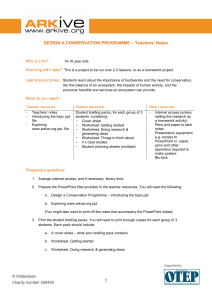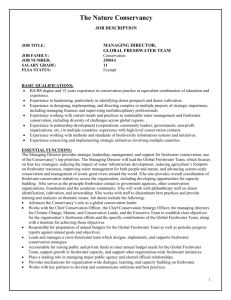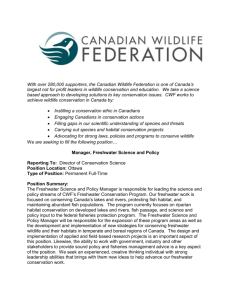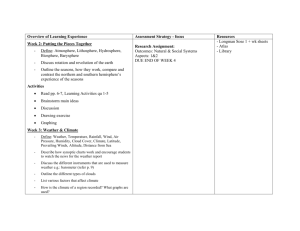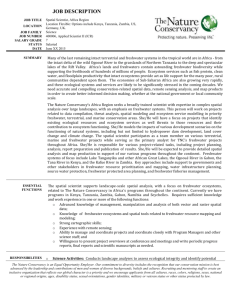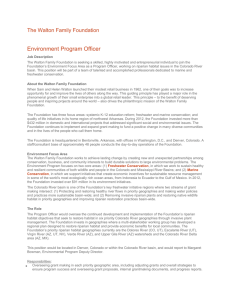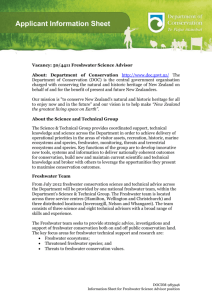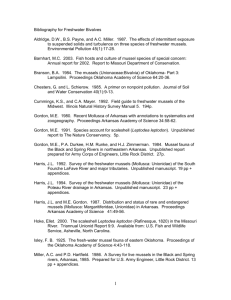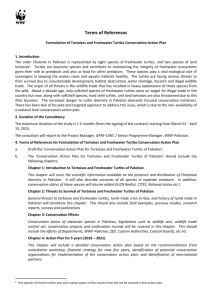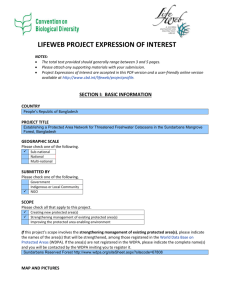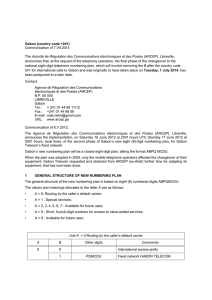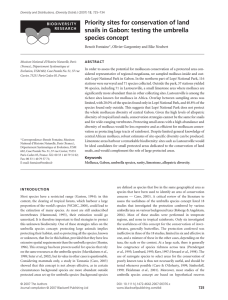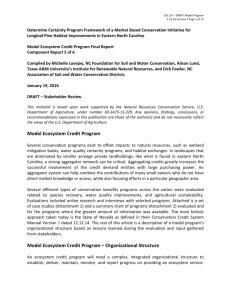Steven R. Schill, Ph.D. | Senior Scientist The Nature Conservancy
advertisement
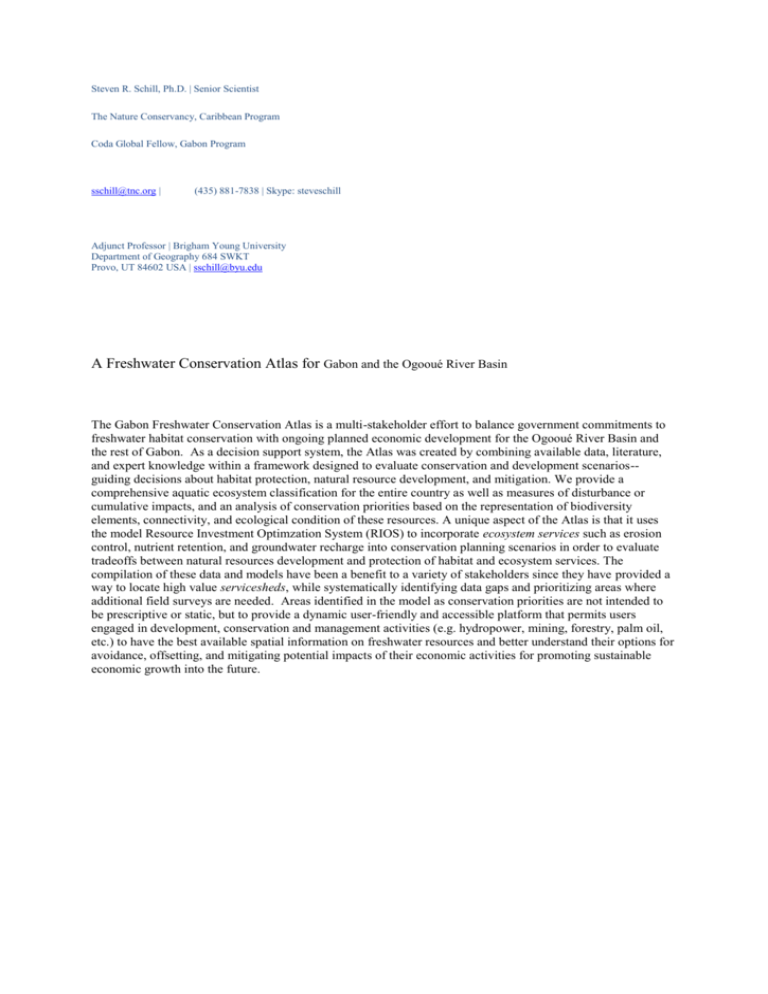
Steven R. Schill, Ph.D. | Senior Scientist The Nature Conservancy, Caribbean Program Coda Global Fellow, Gabon Program sschill@tnc.org | (435) 881-7838 | Skype: steveschill Adjunct Professor | Brigham Young University Department of Geography 684 SWKT Provo, UT 84602 USA | sschill@byu.edu A Freshwater Conservation Atlas for Gabon and the Ogooué River Basin The Gabon Freshwater Conservation Atlas is a multi-stakeholder effort to balance government commitments to freshwater habitat conservation with ongoing planned economic development for the Ogooué River Basin and the rest of Gabon. As a decision support system, the Atlas was created by combining available data, literature, and expert knowledge within a framework designed to evaluate conservation and development scenarios-guiding decisions about habitat protection, natural resource development, and mitigation. We provide a comprehensive aquatic ecosystem classification for the entire country as well as measures of disturbance or cumulative impacts, and an analysis of conservation priorities based on the representation of biodiversity elements, connectivity, and ecological condition of these resources. A unique aspect of the Atlas is that it uses the model Resource Investment Optimzation System (RIOS) to incorporate ecosystem services such as erosion control, nutrient retention, and groundwater recharge into conservation planning scenarios in order to evaluate tradeoffs between natural resources development and protection of habitat and ecosystem services. The compilation of these data and models have been a benefit to a variety of stakeholders since they have provided a way to locate high value servicesheds, while systematically identifying data gaps and prioritizing areas where additional field surveys are needed. Areas identified in the model as conservation priorities are not intended to be prescriptive or static, but to provide a dynamic user-friendly and accessible platform that permits users engaged in development, conservation and management activities (e.g. hydropower, mining, forestry, palm oil, etc.) to have the best available spatial information on freshwater resources and better understand their options for avoidance, offsetting, and mitigating potential impacts of their economic activities for promoting sustainable economic growth into the future.


